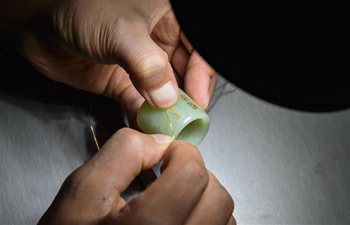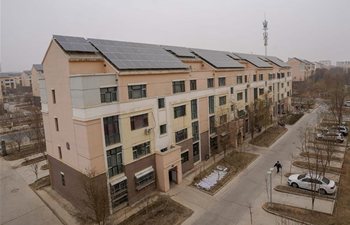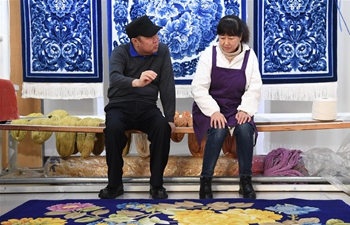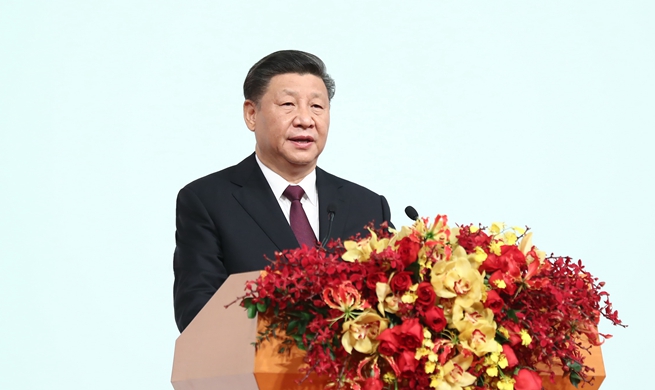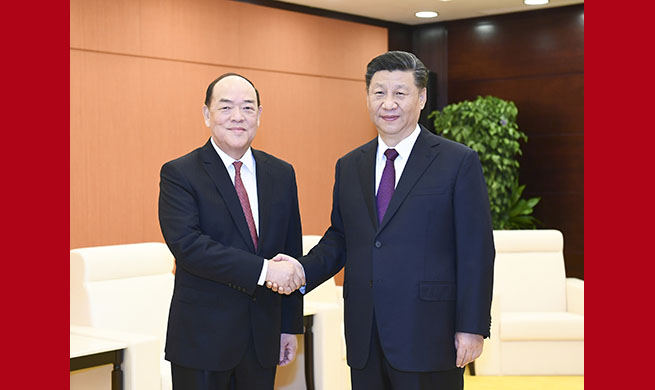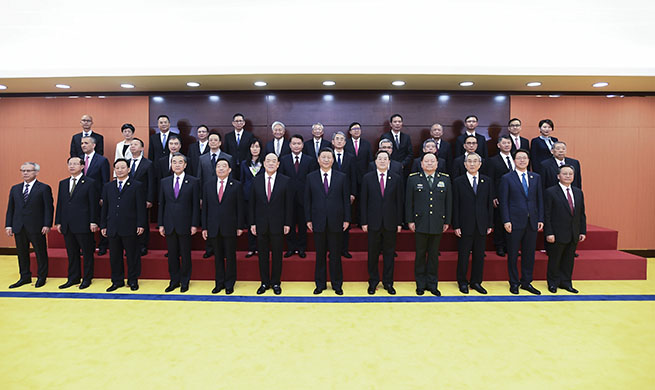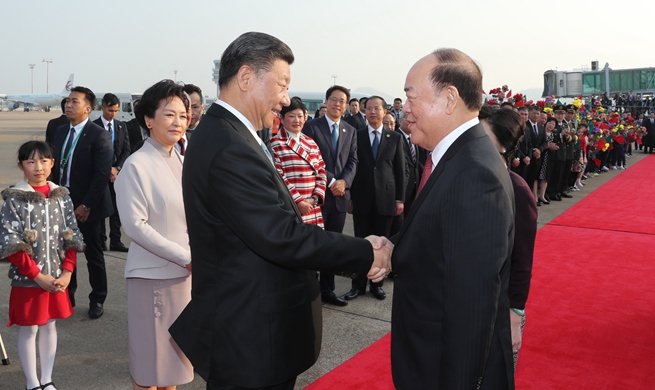BEIJING, Dec. 21 (Xinhua) -- Swiping, typing and scanning QR codes on a smartphone may seem like a daunting task for some seniors, but it is increasingly becoming an integral part of daily life in China.
82-year-old Ma Xiuqin's face lit up the moment her first picture sent out via WeChat, a major Chinese social media platform. She couldn't wait to show the photo to those around her at a community nursing center in Beijing.
Such mobile applications have now been intertwined with Chinese people's daily lives, including but not limited to sending instant messages, making payments, booking tickets and hailing rides.
Li Meina, a caregiver who spent three weeks helping Ma learn how to use WeChat, said the key to caring for elderly people is to make them feel valued.
EXPAND PROFESSIONAL WORKFORCE
Li, 23, took up her job as an event planner for seniors after graduating from the Department of Senior Citizens Welfare at the Beijing College of Social Administration in 2017.
By virtue of her professional skills and considerable patience, she is good at the work and gets along well with people about three times her age.
"The industry is in need of our young generation with vitality and vigor," Li said.
Among the 168 graduates from her class of 2017, however, less than one-third still work in the elderly care field.
China had a population of 249 million aged 60 or above by the end of 2018, making up 17.9 percent of the national population. The number is expected to peak at 487 million in 2050, which means one in every three Chinese will be a senior citizen.
However, there are only 300,000 professional nursing workers for the aged, according to official data.
To bolster the understaffed workforce and provide more suitable services for the elderly, a slew of measures have been rolled out.
The authorities have adopted preferential policies and offered financial support to attract young people into the elderly-care sector and encouraged local education departments to train more skilled staff in the field, according to a guideline on supporting the social service industry issued in October.
China also issued a new set of professional standards for elderly caregivers, lowering thresholds for entering the sector, expanding career paths for nursing staff and shortening the periods in between promotions.
AN INTEGRATED CARING SYSTEM
China now has more than 40 million senior citizens who are totally or partially disabled.
"The key point is that caring for them is a professional matter and it is a chore, 24 hours a day," said Wu Yushao, deputy director of the China National Committee on Ageing.
In a move to provide more comprehensive elderly services, the integration of medical and nursing care has been promoted, encouraging both medical staff and institutions to establish contractual service relationships with the families of elderly patients, according to a guideline on promoting the development of elderly-care services issued this year.
"Old-age care is a social issue," said Li Ling, a professor with the National School of Development at Peking University. "The Chinese approach to tackling it is to mobilize every single social force."
China has seen more retirement communities featuring integrated care services akin to the Continuing Care Retirement Community, a type of an international retirement community that offers services tailored to elderly needs from independent living, assisted living to skilled nursing care.
Financial institutions such as insurance companies are also encouraged to invest in and set up old-age nursing institutions integrated with medical services, for which the government will provide preferential policies in registration, land supply and tax, according to a recent guideline on deepening medical and old-age care integration.
Up to now, China has nearly 4,000 such institutions providing integrated medical and old-age care, and more than 20,000 medical institutions are under contract with elderly-care providers to offer services including on-site visits, first aid, diagnosis and treatment.
BENEFICIAL TO ALL
For senior citizens grappling with health issues, especially those who need long-term care, the cost of elderly care is definitely one of their top concerns.
A nursing center in Shanghai's Changning District, invested by the state-owned enterprise Wanhong Industrial Investment Co., Ltd., has a total of 80 beds with its occupancy rate consistently at 90 to 95 percent, said Zhu Hua, chairman of the company.
Elderly people can enjoy care services together with a wide range of activities such as singing, painting and playing the piano. The price of each bed ranges from 3,000 to 5,000 yuan (about 429 to 715 U.S. dollars) per month.
"The reasonable prices and convenient location of the center are the reason its beds are always in short supply," said Zhu.
Besides leveraging the role of state-owned enterprises, more cooperation between local governments and enterprises in elderly-care projects has been highlighted in a special action plan released by the central government, with the aim to provide accessible and affordable services.
The program has received 1.4 billion yuan from the central budget and attracted 119 projects in 64 cities, offering 70,000 new beds for seniors.
Targeting medium- and low-income groups in cities, it requires the participating entities to set prices equivalent to the disposable income of local residents while enjoying various preferential policies.
By 2022 China is projected to see all communities equipped with elderly-care facilities and train 2 million nursing workers for the elderly, while also launching a variety of elderly-care insurance products, among others, according to a government plan.
"In an aging society, no one can stand aloof. All must contribute to 'the community with a shared future'," Wu Yushao said. "The elderly will enjoy a stronger sense of fulfillment and happiness with more people working together in the field."




